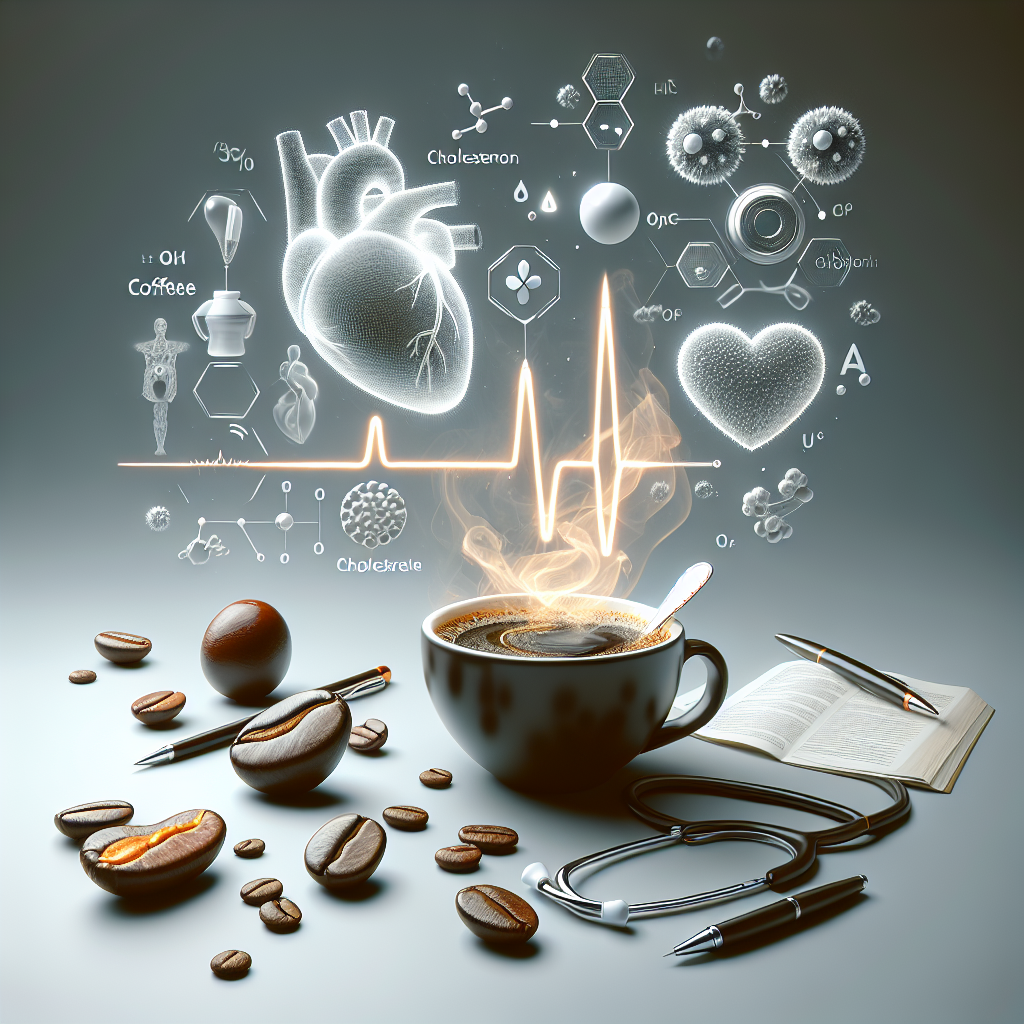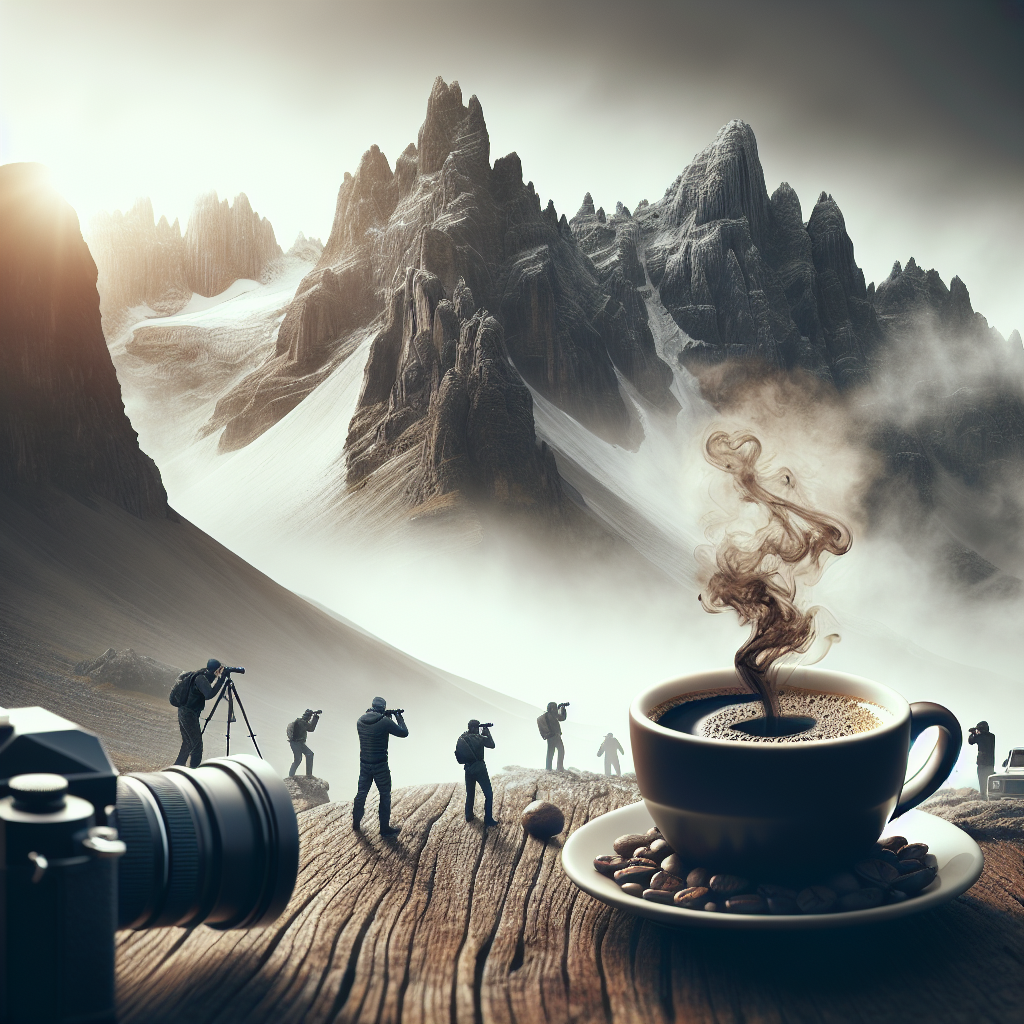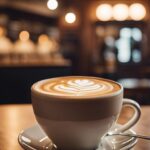It’s time to settle the age-old debate: What is the best water temperature for brewing that perfect cup of coffee? When considering making your daily pick-me-up, the temperature of the water can make all the difference in bringing out the flavors and aromas. Let’s research into the science behind brewing temperatures and uncover the secret to achieving coffee perfection every time you brew.
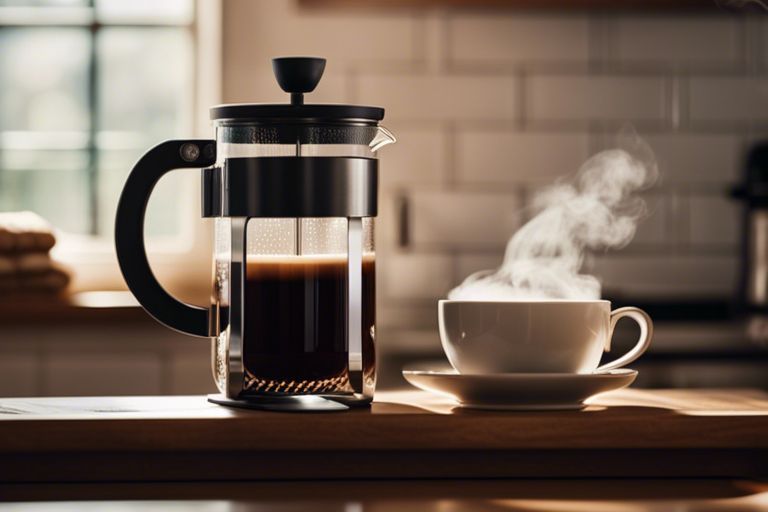
Key Takeaways:
- The best water temperature for brewing coffee is between 195°F and 205°F.
- Water that is too hot can scorch the coffee grounds, resulting in a bitter taste.
- Water that is too cold may not extract enough flavor from the coffee beans.
- Consistency in water temperature is crucial for brewing a consistently great cup of coffee.
- Investing in a good quality kettle with temperature control can help you achieve the perfect water temperature for brewing coffee.
David Sedaris might say, “Achieving the ideal water temperature for brewing coffee is like finding the perfect balance in life – not too hot, not too cold, just right. It’s the Goldilocks of coffee-making, and getting it spot on will make your taste buds sing!”
The Science of Brewing
The Importance of Water Temperature
Temperature
To brew the perfect cup of coffee, the water temperature plays a crucial role. The ideal water temperature range for brewing coffee is between 195°F and 205°F. Water that is too hot can lead to over-extraction, causing the coffee to taste bitter, while water that is too cold may result in under-extraction, producing a weak and sour cup of coffee.
| Effects of Water Temperature | Coffee Taste |
| Too hot | Bitter |
| Too cold | Sour |
How Temperature Affects Coffee Flavor
Any
The water temperature influences the extraction process of coffee. When hot water comes into contact with coffee grounds, it helps dissolve and extract the flavors and compounds from the beans. The rate of extraction is directly impacted by the temperature of the water, affecting the final taste of the brewed coffee.
Temperature
Understanding how temperature affects coffee flavor can help coffee enthusiasts refine their brewing technique. Experimenting with water temperatures within the optimal range can lead to discovering the perfect balance of flavors in a cup of coffee.
| Water Temperature | Extraction |
| Too high | Over-extraction (bitter taste) |
| Optimal range | Perfect extraction (balanced flavors) |
| Too low | Under-extraction (weak and sour taste) |
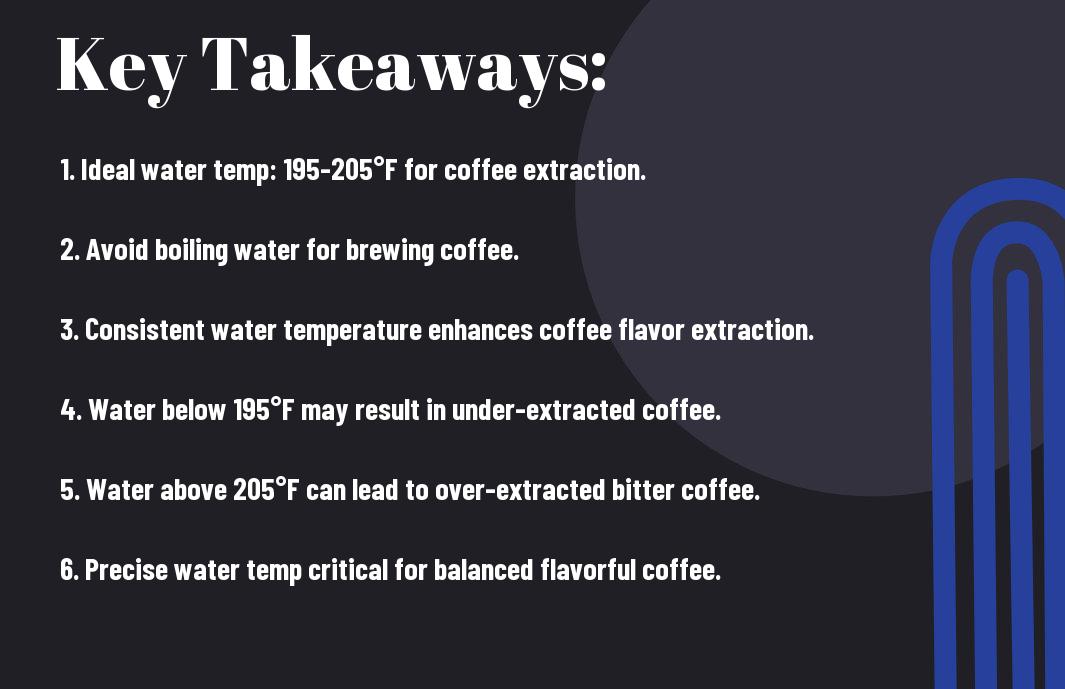
The Ideal Temperature Range
Clearly, the ideal water temperature for brewing coffee is crucial in achieving a perfect cup. Let’s probe the specifics of the ideal temperature range for brewing coffee.
The SCAA’s Recommended Temperature
| For | Against |
| Heating water to the Specialty Coffee Association of America (SCAA) recommended temperature of 195-205°F (90.5-96°C) allows for optimal extraction of flavors from the coffee grounds. | Brewing coffee at temperatures above 205°F (96°C) can lead to over-extraction, resulting in a bitter taste. |
When following the SCAA’s guidelines for water temperature, you can enhance the flavor profile of your coffee and avoid any unpleasant bitterness that may arise from overheating.
The Effect of Temperature on Coffee Extraction
| On | Effect |
| Temperature plays a crucial role in coffee extraction, as water that is too cold may not extract enough flavors, while water that is too hot can lead to undesirable qualities in the coffee. | Optimal extraction occurs between 195-205°F (90.5-96°C), allowing for the proper balance of acidity, sweetness, and bitterness in the coffee. |
Effectively controlling the water temperature during the brewing process is key to achieving a well-balanced and flavorful cup of coffee. It is important to understand how temperature impacts extraction to brew the best possible cup every time.
Factors Affecting Optimal Temperature
Once again, the best water temperature for brewing coffee is a crucial factor in achieving the perfect cup. Several elements can influence the optimal temperature, making it important to consider these factors for the best results. Recognizing these variables can help coffee enthusiasts understand how to adjust the brewing process accordingly.
| Coffee Bean Origin | Roast Level |
| Arabica beans may require a different brewing temperature than Robusta beans. | Lighter roasts might benefit from a slightly lower temperature to preserve delicate flavors. |
Coffee Bean Origin and Roast Level
An important factor to consider when determining the best water temperature for brewing coffee is the origin of the coffee beans and their roast level. Different coffee beans from various regions and with varying roasting levels can react differently to water temperatures during the brewing process. For example, Arabica beans from certain regions may require a higher water temperature for optimal extraction compared to Robusta beans. Additionally, lighter roast levels are often more acidic and complex, requiring a slightly lower brewing temperature to avoid a bitter taste and preserve delicate flavors.
Brewing Method and Equipment
Originating from the type of brewing method and equipment used, the water temperature for brewing coffee can vary significantly. Factors such as immersion brewing, pour-over methods, or espresso machines all require specific temperature ranges to extract the flavors properly. Plus, the quality of the brewing equipment, including the grinder and water filtration system, can also impact the ideal water temperature for brewing a delicious cup of coffee.
Any coffee enthusiast knows that personal taste preferences play a significant role in determining the best water temperature for brewing coffee. Factors such as the desired strength, flavor profile, and aroma can all influence the temperature at which you should brew your coffee. Experimenting with different temperatures based on personal preferences can help you discover the perfect balance of flavors in your cup of coffee.
Coffee is a versatile beverage that can be customized to suit individual preferences, making it important to consider various factors when determining the best water temperature for brewing. By understanding how coffee bean origin, roast level, brewing method, equipment, and personal taste preferences affect optimal temperature, you can elevate your coffee brewing experience and enjoy a perfect cup every time.
Experimenting with Temperature
Now that you understand the importance of water temperature in brewing coffee, it’s time to conduct your own temperature experiments to find the perfect brew for your taste buds. Below are some guidelines to help you get started:
Conducting Your Own Temperature Experiments
| Temperature | Outcome |
| 195°F – 205°F (90.6°C – 96.1°C) | Optimal temperature range for most coffee brewing methods, extracting the best flavors. |
| Below 195°F (90.6°C) | May result in under-extracted, weak coffee with a lack of depth in flavor. |
| Above 205°F (96.1°C) | Could lead to over-extraction, resulting in a bitter and burnt taste. |
Tips for Achieving Consistent Results
When conducting temperature experiments, it’s imperative to maintain consistency for accurate comparisons. Here are some tips to help you achieve consistent results:
- Use a thermometer to measure water temperature precisely.
- Preheat your brewing equipment to minimize heat loss during the brewing process.
- Keep a log of the water temperature used and the corresponding taste outcomes for future reference.
For a successful coffee brewing experience, consistency is key. By following these tips, you can ensure that your temperature experiments yield reliable results that help you identify the best water temperature for brewing your perfect cup of coffee. Experiment with different temperatures, take note of the flavors extracted, and adjust accordingly to achieve your desired taste profile. After all, the journey to the perfect brew is all about experimentation and discovery!
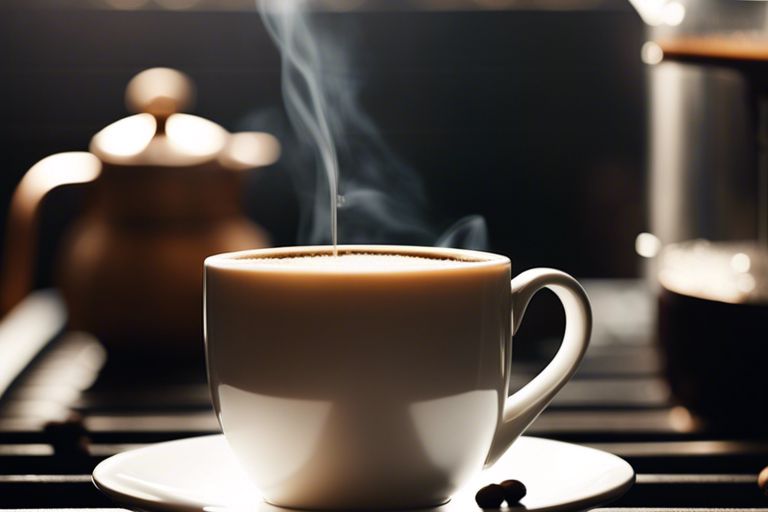
Common Misconceptions
Debunking the Myth of Boiling Water
With all the hustle and bustle of our daily lives, it’s easy to fall into the trap of thinking that boiling water is the way to go when brewing coffee. However, this common misconception can actually be detrimental to the quality of your brew. Boiling water can scorch the coffee grounds, resulting in a bitter and over-extracted taste that no one wants to wake up to in the morning.
The Dangers of Under-Extracted Coffee
Commonly misconceived as a minor flaw, under-extracted coffee can ruin your morning ritual. Under-extracted coffee occurs when the water temperature is too low, leading to a weak and lackluster brew that lacks the full flavor potential of the beans. It’s crucial to find the perfect balance in water temperature to ensure that you extract all the nuanced flavors and aromas that make your coffee experience truly exceptional.
Water temperature plays a vital role in the extraction process, affecting everything from the aroma to the taste of your coffee. The next time you reach for your kettle, remember that finding the right water temperature is just as important as selecting high-quality beans. Don’t fall for common misconceptions; instead, savor the rich and full-bodied flavors that a well-brewed cup of coffee has to offer.
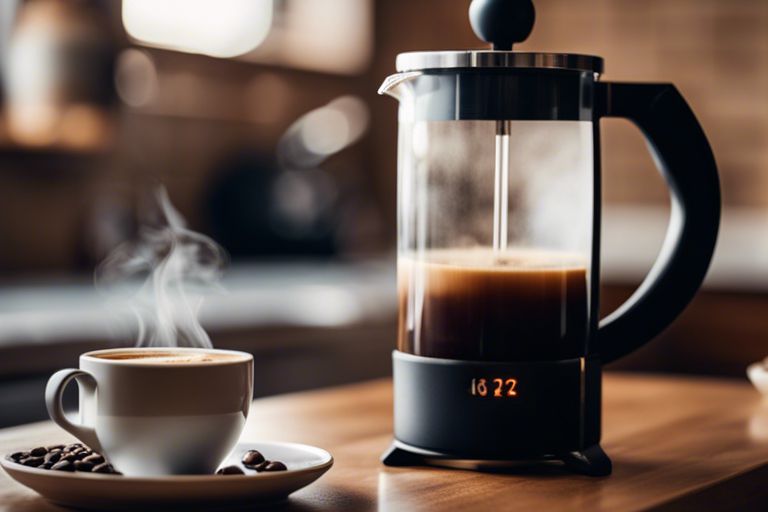
Putting it into Practice
Many coffee enthusiasts are eager to put their newfound knowledge about water temperature to use when brewing their morning cup of Joe. Whether you’re making a pour-over, French press, or using a drip coffee maker, adjusting the water temperature can make a noticeable difference in the flavor of your coffee.
Adjusting Your Brewing Technique
To get the best results from your coffee beans, it’s necessary to adjust your brewing technique based on the recommended water temperature. For example, if you find that your coffee tastes bitter or over-extracted, try using slightly cooler water. On the other hand, if your coffee is weak or lacks flavor, increasing the water temperature may help extract more flavors from the beans.
Investing in a Temperature-Controlled Brewer
Brewing coffee at the ideal temperature consistently can be a challenge when using traditional brewing methods. Investing in a temperature-controlled coffee maker can help maintain the perfect water temperature for brewing, ensuring a consistently delicious cup of coffee every time.
| Brewer | Description |
| Temperature Control | Allows you to set and maintain the precise water temperature for optimal coffee extraction. |
| Consistency | Produces consistent results, eliminating the guesswork of manually adjusting the water temperature. |
Investing in a temperature-controlled brewer can be a game-changer for coffee lovers who value precision and consistency in their brewing process. With features like programmable settings and temperature control, these brewers take the guesswork out of achieving the perfect water temperature for brewing coffee.
To wrap up
Taking this into account, it is clear that the best water temperature for brewing coffee falls between 195-205°F. This temperature range allows for the extraction of optimal flavors from the coffee grounds, resulting in a well-balanced and delicious cup of coffee. By paying attention to water temperature, coffee enthusiasts can elevate their brewing experience and enjoy a more flavorful and satisfying cup of coffee.
FAQ
Q: What is the best water temperature for brewing coffee?
A: The best water temperature for brewing coffee is between 195°F and 205°F (90.6°C and 96.1°C). This range is ideal for extracting the delicious flavors from the coffee beans without burning them.
Q: Why is water temperature important when brewing coffee?
A: Water temperature plays a crucial role in coffee brewing because it affects the extraction of flavors from the coffee beans. Using water that is too hot can result in a bitter, over-extracted taste, while water that is too cold may not extract enough flavor, resulting in a weak and underwhelming brew.
Q: How can I ensure the water is at the right temperature for brewing coffee?
A: To ensure the water is at the right temperature for brewing coffee, you can use a thermometer to measure the water temperature. Alternatively, you can bring the water to a boil and then let it cool for about 30 seconds before pouring it over the coffee grounds. This method will help you achieve the optimal water temperature for a perfect cup of coffee.
What are the origins of coffee

